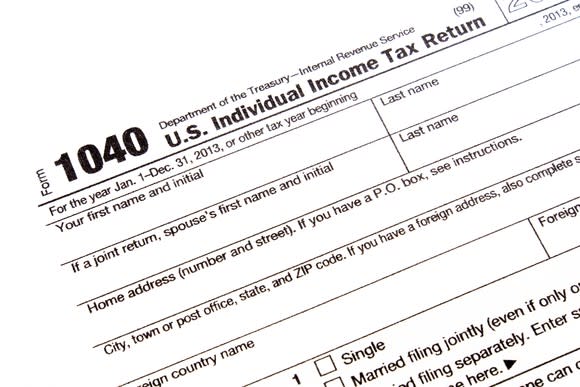5 tax deductions that could save you big bucks in 2017
We all want to save money on taxes. Here are a few key deductions that could lower your tax burden this year.
1. Mortgage interest
Though there are numerous tax breaks available to homeowners, the mortgage interest deduction can be particularly lucrative, especially during the early years of your mortgage. That's because during this time, the majority of your monthly payments are applied to the interest portion of your loan, as opposed to its principal. As long as your mortgage isn't more than $500,000 if you're a single tax filer or $1 million if you're a joint filer, you can write off the total amount of interest you pay for the year.

IMAGE SOURCE: GETTY IMAGES.
You should also know that if you pay a private mortgage insurance (PMI) premium (which typically applies to homeowners who don't make a 20% down payment) on top of your regular mortgage payment, you may be allowed to deduct that amount as well provided you don't make too much money. You'll be eligible to deduct PMI if you earn $54,000 or less as a single tax filer, or $109,000 or less as a couple filing jointly.
2. Medical expenses
Healthcare costs can be a huge burden for Americans of all ages, but they tend to hit seniors and families with young children particularly hard. The good news is that if your medical costs for the year are high enough, you can deduct expenses that exceed 10% of your adjusted gross income (AGI). Imagine you earn $60,000 but have a health condition that requires you to spend $10,000 out of pocket during the year. You'd be eligible to deduct any amount that exceeds $6,000, which, in this case, is $4,000.
RELATED: 10 ridiculous things we've all said while filing our taxes:
3. Charitable contributions
Any time you donate cash or goods to a registered charity, you're allowed to deduct the value of that donation on your taxes. All you need to do is retain a receipt acknowledging your contribution. Now to take a deduction for donated items, you'll need to figure out the fair market value of whatever you give away. Some organizations, however, like Goodwill, provide valuation guides that can help with this process.
One thing to keep in mind about charitable contributions is that if you claim too high a deduction, you might trigger an audit. The IRS has data on how much taxpayers typically donate per year based on income level, and if you come across as overly generous, it could wind up hurting you. As an example, those who earn between $25,000 and $50,000 a year take a $2,594 deduction on average. Taking a $10,000 deduction on a $40,000 salary could therefore raise a serious red flag.
4. Job search expenses
Looking for work can be a costly prospect, but if you meet certain criteria and thoroughly document your expenses, you might get a sizable tax deduction out of the deal. Any time you travel to a job interview, you can deduct the costs of getting to and from your destination, including air or rail fare, parking fees, and lodging. You can also deduct the cost of using a career counselor or resume service.
To take a deduction, however, you must be looking for work within your current field. You also can't be a recent college graduate looking for your first job. Furthermore, you can only deduct job search expenses that exceed 2% of your AGI. So if your AGI is $40,000 and you spend $3,000 looking for a new job, you can take a $2,200 deduction.
5. Investment losses
Losing money on an investment is far from ideal, but if you have investments that are performing poorly, selling them for less than what you paid could help you tax-wise. Losses on investments can be used to cancel out taxable gains. So if, for example, you sell one investment at a $5,000 gain but take a $5,000 loss on another, your loss will cancel out that gain, and you won't have to pay taxes on it.
Additionally, if your net investment loss for the year exceeds your gains, you can use up to $3,000 of it to offset ordinary income. And if you're still left with a loss after that, you can carry the rest forward and take a deduction in future tax years.
Of course, these are only some of the deductions available to tax filers. If you're looking to lower your taxes this year, it pays to read up on different deductions and see which ones you're eligible for. The more legitimate deductions you claim, the more hard-earned cash you'll get to save.

